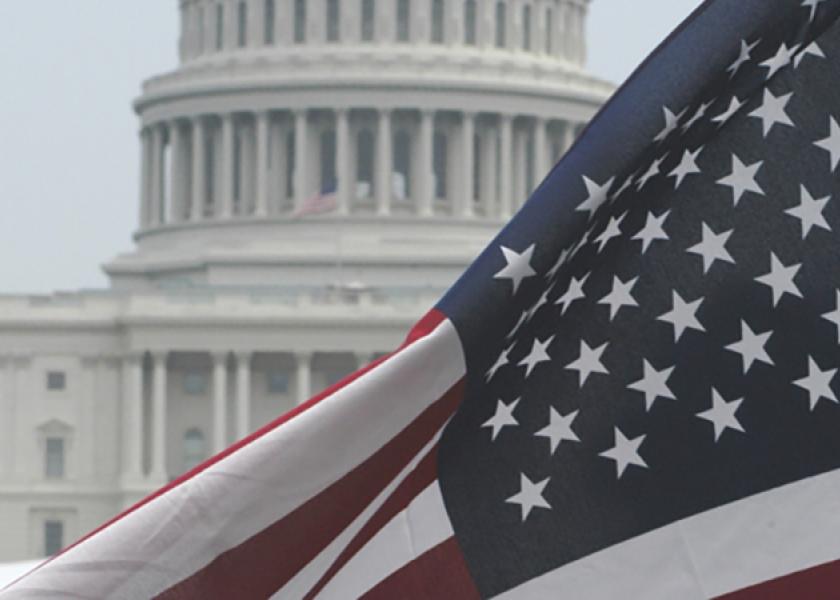USDA: Time to tweak Buy American provisions of feeding programs?

Should the U.S. Department of Agriculture change the way Buy American provisions in school meal programs are used?
That is one question the U.S. Department of Agriculture’s Food and Nutrition Service (FNS) is seeking answers to in a request for comments.
The USDA’s Food and Nutrition Service published a request for information on the Buy American provision in the National School Lunch Program and School Breakfast Program. The agency is asking interested parties to give their input, according to a news release.
In particular, the USDA is requesting input on:
- How the Buy American provision and guidance are currently implemented;
- Changes the FNS should make to current regulations; and
- Guidance and feedback on how FNS can better support local operators as they strive to purchase domestic foods and food products.
To claim federal reimbursement for meals served, school food authorities must follow federal procurement and program regulations, including the Buy American provision.
On Jan. 25 this year, President Biden signed the Executive Order on Ensuring the Future is Made in All of America by All of America’s Workers (referred to as the Buy American Executive order hereafter) supporting the American economy by requiring terms and conditions of Federal financial assistance awards and Federal procurements to maximize the use of goods, products, and materials produced in, and services offered in, the U.S. The USDA is seeking input from stakeholders in response to this Executive Order, according to the agency.
The USDA Food and Nutrition Service has provided limited exceptions to the Buy American provision which allow for the purchase of imported foods in circumstances when use of domestic foods is truly not practicable. These the USDA said those exceptions, as determined by the school food authority, are:
- The product is not produced or manufactured in the U.S. in sufficient and reasonably available quantities of a satisfactory quality; or
- Competitive bids reveal the costs of a U.S. product are significantly higher than the non-domestic product.
The USDA said it has not defined a dollar amount or percentage triggering possible use of an exception. If a school food authority is using one of the above exceptions, there is no requirement at this time to request a waiver from the state agency or USDA in order to purchase a non-domestic product, according to the agency.
However, school food authorities must keep documentation justifying their use of exceptions, the USDA said, noting that state agencies must ensure school compliance with the Buy American provision when conducting oversight processes.
“FNS has already received feedback that stakeholders face difficulties in implementing and monitoring the Buy American provision and guidance,” the agency said in its request for information. “Additionally, stakeholders have reached out for assistance with interpreting and following the Buy American provision and have also requested help with understanding the exceptions.”
The USDA is accepting comments on the issue until Nov. 2 at regulations.gov https://bit.ly/3xvx6LU







